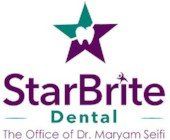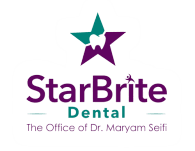Tooth and Bone Loss
Tooth and Bone Loss: Understanding Jawbone Deterioration and Treatment Options
The health of your jawbone plays a crucial role in maintaining the structure of your face, the alignment of your teeth, and overall oral function. However, jawbone deterioration can occur due to tooth loss, gum disease, and other health conditions, leading to significant oral health concerns. When a tooth is lost and not replaced, the underlying jawbone shrinks due to lack of stimulation. Over time, this process can lead to facial sagging, difficulty chewing, and an increased risk of further tooth loss. Understanding the causes, consequences, and treatment options for tooth and bone loss is essential for preserving long-term oral health.
Causes of Tooth & Bone Loss
Several factors contribute to the gradual deterioration of the jawbone, including:
Consequences of Bone Loss
Bone loss in the jaw can have severe consequences, affecting both function and aesthetics. It is not just a cosmetic concern but also a serious oral health issue that can impact your overall well-being. Below are some of the most common effects of jawbone deterioration:
How Starbrite Dental Addresses Bone Loss
At Starbrite Dental, Dr. Maryam Seifi and her team provide comprehensive care to diagnose, prevent, and treat bone loss using advanced dental technologies and personalized treatment plans.
Dr. Maryam Seifi’s Approach
Dr. Seifi employs a holistic, patient-centered approach to bone loss prevention and treatment. She focuses on restoring jawbone health and preventing further deterioration through modern dental solutions.
Advanced Diagnostic Tools
Using state-of-the-art CBCT scans and digital X-rays, Starbrite Dental can accurately assess bone density, tooth alignment, and underlying structural issues to develop effective treatment plans.
Personalized Treatment Plans
Each patient receives a customized treatment strategy designed to restore bone density and support oral health. This ensures optimal results for tooth replacement and jawbone preservation.
Treatment Options for Bone Loss
Fortunately, there are several effective treatments available to restore lost bone and prevent further deterioration. At Starbrite Dental, Dr. Maryam Seifi and her team offer advanced solutions to help patients regain their oral health and facial structure.
Frequently Asked Questions (FAQ)
Patients often have concerns about bone loss and its treatments. Below are some of the most common questions and answers to help guide your understanding.
Expert Care for Tooth & Bone Loss in Rockville, MD
If you’re experiencing tooth or bone loss, don’t wait for the problem to worsen. Schedule a consultation with Dr. Maryam Seifi at Starbrite Dental today! Our team is committed to helping you restore your smile and maintain excellent oral health.
📍
Location: Rockville, MD
📞Contact:Call us to book your appointment!
Contact Us To Schedule An Appointment Today!
*We DO NOT ACCEPT HMO Insurance, State Insurance, Medicaid/Medicare, or discount plans. Fees apply for services. and same-day appts/emergencies.
Evening and Weekend Hours Available
- Monday
- Closed
- Tuesday
- -
- Wed, Fri
- -
- Thursday
- -
- Saturday
- -
- Sunday
- Closed
Office
(301) 770-1070
Fax (301) 770-0544
5936 Hubbard Dr, Rockville, MD 20852


